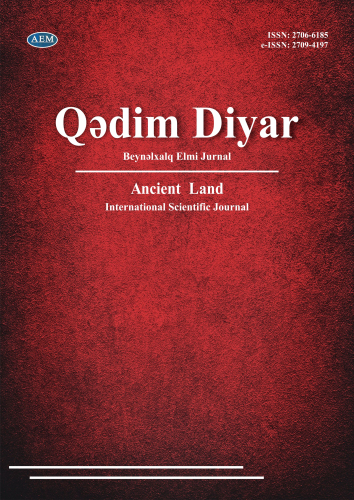DOI: https://doi.org/10.36719/2706-6185/29/84-92
Nuranə İbadova
Bakı Dövlət Universiteti
dissertant
MƏİŞƏT ZORAKILIĞI İNSAN HÜQUQLARININ POZUNTUSU KİMİ.
MƏİŞƏT ZORAKILIĞI İLƏ ƏLAQƏDAR DÖVLƏTİN POZİTİV ÖHDƏLİKLƏRİ VƏ MƏİŞƏT ZORAKILIĞININ QARŞISININ ALINMASI İLƏ ƏLAQƏDAR ŞƏXSİN AZADLIQ HÜQUQUNUN MƏHDUDLAŞDIRILMASI
Xülasə
İrqindən, rəngindən, cinsindən, dinindən və siyasi əqidəsindən asılı olmayaraq bütün insanların eyni statusa malik olması və hər kəsin insan hüquqlarından bərabər faydalanması müasir demokratik cəmiyyətin əsas dəyərlərindən birini təşkil edir. Lakin uzun müddət ərzində insan hüquqlarının həmişə kişilərə aid olduğu düşünülmüş və bəşər övladının yarısını təşkil edən qadınların hüquqları kişilərlə müqayisədə daha çox pozulmuşdur. Son bir neçə onillikdə qadınların hüquqlarının daha yaxşı müdafiəsi istiqamətində beynəlxalq, regional və milli səviyyədə gerçəkləşdirimiş mühüm hüquqi islahatlara dair çoxlu nümunələr olsa da bu istiqamətdə problemlər hələ də qalmaqdadır. Məqalədə bununla əlaqədar olaraq insan hüquqlarının universallığı prinsipindən, qadınlara qarşı zorakılığın ən geniş yayılmış formalarından biri olan məişət zorakılığı ilə bağlı dövlətin pozitiv öhdəliklərindən bəhs edilir və məişət zorakılığının qarşısının alınması ilə əlaqədar şəxsin azadlıq hüququnun məhdudlaşdırılması ilə bağlı məsələlər Avropa İnsan Hüquqları Konvensiyasının və onun nəzarət orqanı olan Avropa İnsan Hüquqları Məhkəməsinin rolu və təsiri çərçivəsində müzakirə edilir.
Açar sözlər: insan hüquqları, qadınların insan hüquqları, məişət zorakılığı, pozitiv öhdəliklər, azadlıq hüququnun məhsdudlaşdırılması
Nuranə İbadova
Baku State University
PhD in student
Domestic violence as a violation of human rights. Positive obligations of the state in connection with domestic violence and restriction of the right to freedom of the person in connection with the prevention of domestic violence
Abstract
One of the main values of modern democratic society is that all people, regardless of their race, color, gender, religion, or political beliefs, have the same status and everyone benefits equally from human rights. But for a long time, human rights were thought to always belong to men, and the rights of women, who make up half of the human race, were violated more than men. Although there are many examples of important legal reforms implemented at the international, regional, and national levels in the last few decades to better protect women's rights, problems in this direction still remain. In this regard, the article talks about the principle of universality of human rights, the positive obligations of the state regarding domestic violence, which is one of the most widespread forms of violence against women, and the issues related to the restriction of a person's right to freedom in connection with the prevention of domestic violence that are covered by the European Convention on Human Rights and its supervisory body. It is discussed within the framework of the role and influence of the European Court of Human Rights.
Keywords: human rights, women's human rights, domestic violence, positive obligations, restriction of the right to freedom

